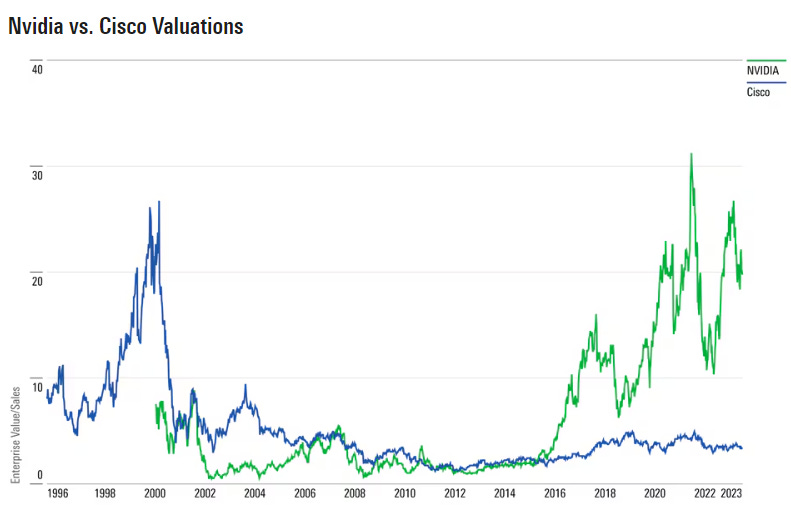Weekly Series #4
Topics: NVIDIA smashes Q1 earnings, DOJ Sues Live Nation for monopoly, American wellbeing in question, Hims & Hers announces compounded weight loss drug GLP-1
NVIDIA Q1 Earnings:
At $26 Billion revenue, NVIDIA smashed expectations and delivered record breaking performance for a company of its size. Here are key facts reported on their official Q1 earnings post:
Revenue was up 18% from previous quarter and 262% from a year ago
Datacenter revenue was at $22.6 Billion which was up 23% from previous quarter and 427% from a year ago. This is almost entirely driven by the AI wave as big-tech are building more and more data centers to support development and delivery of AI applications
Ten-for-one forward stock split effective June 7
NVIDIA is extremely well positioned to ride the AI wave and to continue performing well in the foreseeable future as more and more datacenters get created to support AI infrastructure. Many analysts are comparing this valuation boom with Cisco, which occurred during the dot-com wave in late 90s. Here’s a chart that shows the valuation spikes for Cisco and NVIDIA over all these years:
Cisco stock price crashed back to the ground after the dot-com bubble burst and some fear NVIDIA stocks might end up in a similar state if the so-called AI bubble were to burst. However, some analysts closer to the silicon and AI industry think that NVIDIA has competitive advantages that Cisco didn’t have. For example, making GPUs such as H-100s (NVIDIA’s GPU used for training AI models) is extremely complex and needs tons of research. By the time others catch up to H-100, NVIDIA would’ve rolled out H-200 (which it’s already working on right now). It’s almost impossible to predict anything, but it looks like NVIDIA’s hold over AI datacenters is here to stay for now.
Live Nation’s concert monopoly challenged by DOJ:
According to Wall Street Journal, Department of Justice filed a lawsuit against Live Nation Entertainment with the goal of breaking it apart from its current monopolistic state in the realm of promotion, sales and operations of events/ticketing services.
Live Nation currently promotes, operates and manages ticket sales for live entertainment. According to DOJ, Live Nation is allegedly harming key stakeholders in the following ways as per this Forbes article:
Fans pay more for tickets, since Live Nation ends up controlling end-to-end event management for most shows.
Artists have fewer opportunities to play concerts, since Live Nation is the biggest organizer in the space.
Venues have fewer choices for ticketing services, as Live Nation also owns Ticketmaster, the biggest ticketing service in the world.
Live Nation stated that it will fight back this lawsuit and denies having a monopolistic control over this business.
Americans don’t feel great about the state of economy:
The economy seems healthy with steady growth and strong stock markets, but people are feeling down. Why the disconnect? Some economists argue that traditional economic measures like GDP miss the bigger picture of how Americans are actually doing. To address this, a group within the American Academy of Arts and Sciences called the Commission on Reimagining Our Economy (CORE) created a new well-being score. This score considers things like financial security, opportunities, health, and even a say in government. Early results show big differences across different parts of the country, and not much overall improvement since 2005. While health has gotten better, it seems like economic security has gotten worse as per the Wall Street Journal.
Hims & Hers announce a compounded GLP-1 treatment for weight-loss:
Last week, Hims & Hers announced plans to offer GLP-1 based weight-loss injections to customers and this news led the stock to spike 38% intraday, as the company is believed to unlock potentially $100 million in revenue over the year, according to this Forbes article.
This GLP-1 injection will be made available for $199, which is a significant discount compared to Novo Nordisk’s Wegovy and Ozempic which cost $1349 and $935 respectively.
This weight loss treatment will be a compounded version of Novo Nordisk’s Semaglutide formulation, which means that it will be custom-formulated by pharmacists for patients by mixing, combining or altering multiple ingredients.
The company has partnered with an FDA approved generics manufacturer to provide this treatment to its patients. They are able to do this due to a provision by FDA to allow others to compound drugs that are in FDA shortage list. Novo Nordisk is trying to ramp up manufacturing, but facing shortage due to extremely high demand for its semaglutide offerings.


